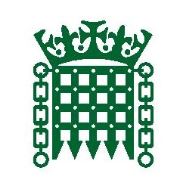This is a report from the British House of Commons Foreign Affairs Committee published on December 8, 2020
Summary
Iran’s malign regional actions challenge the values which underpin British foreign policy. International cooperation, safeguarding human rights, and upholding the rule of law are all weakened by Tehran. The change of administration in the United States, the renewed nuclear activity in Iran and the recent attack on a senior nuclear scientist make this a moment when the UK’s relationship with Iran seems of special relevance. The 2015 Joint Comprehensive Plan of Action (JCPOA), which sought to remove the prospect of a nuclear-armed Iran, has been unravelling since 2018, and Iran continues to disregard its international human rights commitments to the detriment of ordinary Iranians, people across the Middle East, and British nationals who have been arbitrarily detained.
There are several actions the Government could usefully pursue to both influence the international response to current challenges and define an approach which is more effective for the UK. The rump JCPOA is imperfect: strengthening it to address its sunset clauses, provisions on ballistic missiles, and the inspection powers of the International Atomic Energy Agency (IAEA) could provide some short-term reassurance. In the long term, the Government needs to outline how it plans to address Iran’s wider destabilising activities and the alliances which will be necessary to achieve this. We encourage the Government to look at its traditional partners within Europe and the US, but to also build a strategy that works through its unique relationship with the Gulf states to broaden the ground for diplomacy and build regional and international consensus on the shape of the response to these challenges.
While the Government needs to operate flexibly to find creative solutions to the current challenges posed by Iran’s nuclear programme, it should also recognise and address the threat posed to ordinary people by the Iranian state. Alongside more direct engagement with the Iranian people building upon shared values and interests, we recommend proscribing the Islamic Revolutionary Guard Corps (IRGC) in its entirety for its clear and enduring support for terrorists and non-state actors working to undermine stability in the region.
More specifically, the arbitrary detention of several British nationals in Iran is of particular concern in the UK. Though we are not alone in seeing our nationals held on spurious grounds, securing timely release for these detainees is an area in which the Government has been ineffective. It needs to review its processes, recognise these detainees as hostages, and lead on an international convention on State Hostage Taking to prohibit and call out this practice. These tools are ineffective on their own: they need to be accompanied by corporate change within the FCDO, and Magnitsky Sanctions which can be used to target human rights abusers within Iran and acting for it abroad.
The prime victims of the Iranian regime are the Iranian people. The UK needs to continue to express support for those suffering under the violence of the regime…
We are satisfied that the actions of the Islamic Revolutionary Guard Corp meet the criteria for proscription in the Terrorism Act 2000 and see proscription as a logical extension of the existing restrictions placed on members of the IRGC by the EU’s sanctions regime. The IRGC’s philosophy and malign actions within Iran and across the region run counter to the interests of the UK and those of the Iranian people.
We recommend that the Foreign Secretary works with the Home Secretary to assess the available information on the Islamic Revolutionary Guard Corps with a view to laying an order before Parliament to proscribe the IRGC in its entirety…
Iran’s human rights record and selective commitment to upholding international law is a threat to the rules based international system generally, and a key challenge faced when aiding detained nationals specifically. The FCDO has admirably used international fora to exert pressure on Iran and to encourage a behaviour change, but a country which does not respect international norms will never be embarrassed into compliance. The time has come for a more robust approach. For its next round of Magnitsky-style sanctions, we recommend that the FCDO prioritises building watertight cases against human rights abusers based in Iran or acting for it abroad, including those involved in the arbitrary detention of UK and dual nationals. (Paragraph 65)…
Published written evidence
The following written evidence was received and can be viewed on the inquiry publications page of the Committee’s website.
UKI numbers are generated by the evidence processing system and so may not be complete.
1- Amnesty International UK (UKI0031)
2- Anglo-Iranian Professionals Association (Mr Sina Adhami, Policy Adviser) (UKI0008)
3- Anglo-Iranian Political Prisoners Association (Mr Ahmad Ebrahimi, Co_ president) (UKI0016)
6- British Committee for Iran Freedom (BCFIF) (Rt Hon David Jones MP, prominent member) (UKI0015)
7- British Iranian Chamber of Commerce (BICC) (Lord Lamont of Lerwick, Chairman) (UKI0013)
8- Community Security Trust (Mr Jonathan Newton, Head of Government Relations and External Affairs) (UKI0003)
23- The National Council of Resistance of Iran—UK Representative Office (Mr Hossein Abedini, Deputy Director) (UKI0011)
